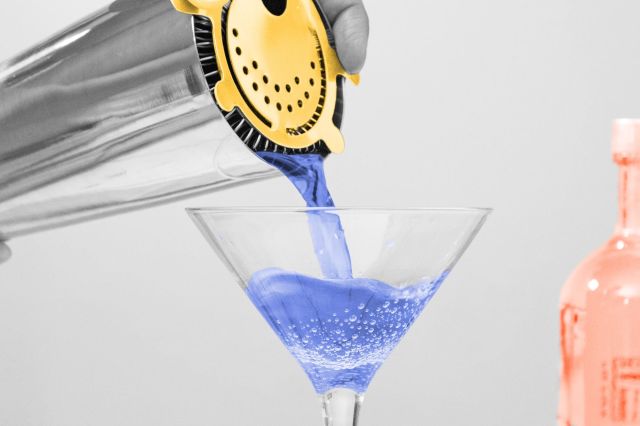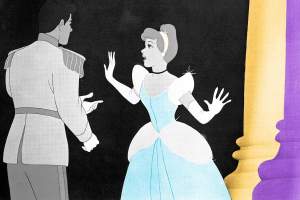
Negroni (Florence, Italy)
In 1919, Count Camillo Negroni bellied up to the bar at Café Casoni and asked for something stronger than his usual Americano (Campari, club soda, and vermouth). Fosco Scarselli obliged, replacing the club soda with gin, and the Negroni was born. While the ownership and name have changed a few times, you can still visit the original space on Piazza della Libertà, now known as Caffè Lietta. (Our advice for mixing the perfect version at home? Put Stanley Tucci in charge of the bar.)

Daiquiri (Havana, Cuba)
Ernest Hemingway had more than one favorite bar, but in Cuba, it was El Floridita. The bar was founded in Havana’s Old Quarter in 1817, and it was already an institution as la cuna del daiquiri — the cradle of the daiquiri — when the famous author walked in. After sampling the original, Hemingway requested “more rum, less sugar” from legendary barman and owner Constantino Ribalaigua. You can still order a Papa Doble, Hemingway’s favorite, while sitting next to his life-sized statue.

Old Fashioned (Louisville, Kentucky)
Kentucky gentlemen know from bourbon, so it’s no surprise that this Don Draper-approved cocktail hails from the Bluegrass State. Dubbed an “old fashioned” for the squat tumbler in which it’s served, this potion consisting of bourbon, sugar, bitters, and orange peel is said to have been invented at the private Pendennis Club in Louisville before making its way to New York’s Waldorf Astoria Hotel.
More Interesting Reads

Bloody Mary (Paris, France)
Everyone argues about this one, but most cocktail historians agree that the bloody mary (appetizingly nicknamed “the bucket of blood”) was born in 1920s Paris, when bartender Ferdinand “Pete” Petiot began experimenting with vodka at Harry’s New York Bar. The spirit, which he found tasteless, was popularized by Russian émigrés fleeing the revolution. Some canned tomato juice and a few spices later, he arrived at the brunch staple we know and love today. Butch McGuire’s in Chicago takes credit for the celery stick swizzle, but the angel who added a slice of crispy bacon remains a mystery.

French 75 (Paris, France)
Boozy and bubbly, this cocktail of gin, champagne, and lemon is named after a 75- millimeter World War I field gun and carries a combat-worthy kick. The invention of legendary barman and cocktail book author Harry MacElhone (who brought Harry’s New York Bar to Paris), the French 75 is essentially a Tom Collins, but with champagne replacing the original’s club soda topper.

Martini (California or New York)
The “shaken or stirred” debate has nothing on the origin of America’s most iconic cocktail, which is vigorously argued by both of the nation’s coasts. The historic town of Martinez, California, swears the gin-and-vermouth classic was created as a celebratory Champagne replacement for a gold miner who struck it rich. New Yorkers insist it’s solely the invention of the bar staff at the Knickerbocker Hotel, named after the Martini in Martini & Rossi vermouth. As for us? We’ll think about it while we have another.

Sazerac (New Orleans, Louisiana)
Creole apothecary Antoine Peychaud is said to have served up a melange of his own bitters and his favorite cognac (Sazerac-de-Forge et fils) in a coquetier, or egg cup, in 1838. Over the years, rye whiskey replaced the cognac, and an antiques store replaced the apothecary at 437 Royal Street, but you can still sip a fine version at the Roosevelt Hotel’s historic Sazerac Bar.

Margarita (Mexico)
Would a daisy by any other name taste as good? When the tequila is flowing, memories get fuzzy and the tales grow taller with every round. Regardless of whether this icy delight was invented by a barman-turned-milkman at the now-defunct Tommy’s in Juarez or at the still-kicking Hussong’s Cantina in Ensenada, this refreshing blend of tequila, Cointreau, and lime was popularized by Southern California liquor distributors who introduced agave-based spirits north of the border — and we’re forever grateful.

Zombie (Hollywood, California)
Along with the fog cutter and many, many more Polynesian-inspired cocktails, we owe the invention of the zombie cocktail to a man named Ernest Gantt. He returned from bumming around the South Seas post-Prohibition, dubbed himself Don the Beachcomber, and opened the world’s first tiki bar in 1934. Heavy on rum, fruit juices, and fun, these potent potables offer a kitschy taste of vacation. While the original Don’s is long gone, zombie aficionados can still live the dream at Hollywood’s Tiki-Ti, serving nostalgia (and mai-tais) since 1961.

Manhattan (New York, New York)
One legend says that this cocktail was first served at a party for Sir Winston Churchill’s mother, Lady Randolph Churchill, at New York City’s Manhattan Club. That venerable lady can no longer confirm or deny, but the Manhattan Club still defends its claim to this heady combination of whiskey, vermouth, and bitters. While the original site at 96 Fifth Avenue now holds an apartment building, and the social club was dissolved in 1979, you can make this venerable cocktail at home, courtesy of another Manhattan institution, The New York Times.






